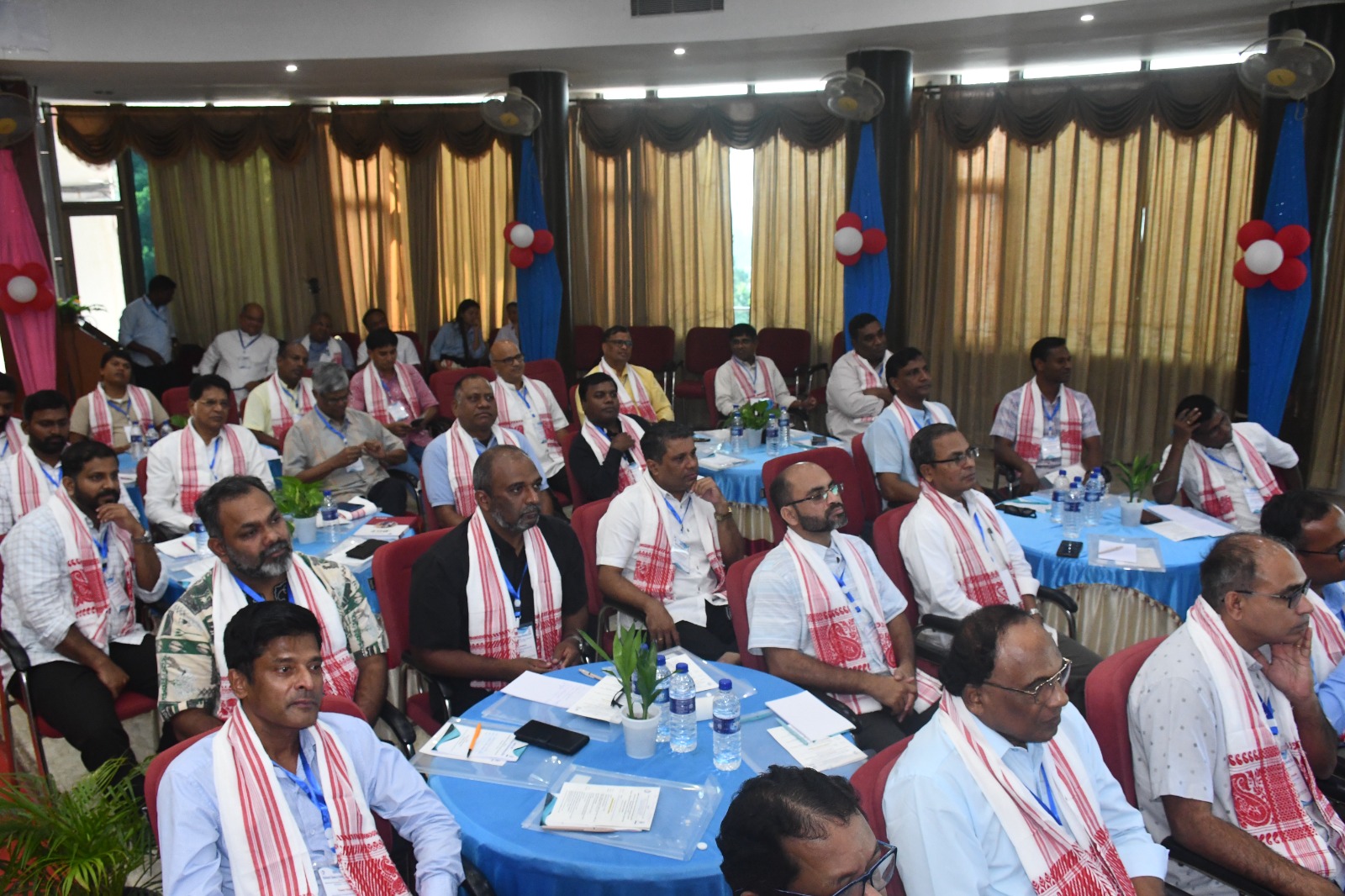Major seminary rectors from across India gathered this past week to address the shifting landscape of priestly formation in a world increasingly shaped by social, technological, and cultural changes.
From Nov. 5 to 9, 2024, the XXIII General Body Meeting of the Association of Rectors of Major Seminaries (ARMS) brought together 62 rectors at the Don Bosco Institute in Guwahati.
Under the theme “Missionary Formation in Major Seminaries,” the conference focused on reimagining how future priests are prepared to serve diverse communities.
Archbishop John Moolachira of Guwahati led the meeting’s opening Holy Eucharist, stressing the importance of thorough preparation for seminarians. “God equips those He calls to take on the mission,” he said, underscoring the profound responsibility of those called to serve as priests.
The keynote address from Archbishop Emeritus Thomas Menamparampil set the tone for the conference, urging rectors to embrace a “transformational shift” in priestly formation.
He highlighted the value of individualized guidance, asserting, “We must recognize and nurture the unique potential of each seminarian.”
Menamparampil’s emphasis on fostering dialogue and promoting cultural integration was echoed throughout the week’s discussions.
Rethinking Traditional Training Models
One of the central themes of the gathering was the call to expand priestly formation beyond traditional academic settings.
Dr. Vincent Darlong, former Vice Chancellor of Martin Luther Christian University in Shillong, offered a historical perspective, noting both the strengths and limitations of India’s current formation approach.
“We must adapt to societal shifts and the diverse expectations of the laity,” Darlong said, advocating for formation strategies that include engagement with marginalized communities.
Rectors were encouraged to incorporate exposure programs into their curricula to help seminarians develop a deeper understanding of the societal issues they may encounter in their ministries.
For Darlong and other participants, these programs represent an opportunity to cultivate empathy and cultural awareness among future priests.
Navigating the Digital Landscape
With today’s youth increasingly present online, formators discussed the necessity of equipping seminarians with digital skills to connect with their communities effectively.
Father Paul Pudussery was among those who highlighted both the potential and risks of the digital world.
“Technology should enhance our connection with people, not isolate us,” he said, stressing the need for responsible and meaningful engagement with digital platforms.
Emphasis on Synodality, Transparency, and Accountability
The assembly also addressed critical topics such as clericalism and church governance, with many calling for increased transparency and accountability in the formation process.
“We are called to be facilitators of Synodality, promoting dialogue and collaboration,” said ARMS Secretary Father Charles Leon, who also pointed to the value of lay involvement in priestly formation to diversify perspectives and encourage collaboration.
Fostering Cultural Sensitivity and Community Engagement
Reflecting on the challenges of ministering to India’s diverse population, Bishop George Palliparambil of Miao in Arunachal Pradesh spoke on the importance of cultural sensitivity.
Palliparambil, a former FABC Chairman for Evangelization, pointed to the potential for dialogue with indigenous communities, citing practices like the Doni Polo cult as examples of local traditions that could enrich the Church’s outreach efforts.
“Building connections with local traditions…can enrich our mission and engagement with communities,” he said, urging seminarians to develop an understanding of local customs and practices.
A Vision for an Inclusive Church
As the gathering drew to a close, Bishop Varghese Chakkalakal emphasized the importance of inclusivity in the Church, advocating for seminarians to embrace a mission-oriented approach to their ministries.
“Like St. Peter, we must inspire future priests to cast wide nets in sharing the Gospel,” he remarked, encouraging rectors to instill seminarians with a spirit of outreach and openness.
A comprehensive module for missionary formation, developed during the conference, was unanimously endorsed by the rectors.
ARMS President Father Richard Britto affirmed that each seminary would integrate this module into its formation program, reflecting a collective commitment to developing priests who are prepared for modern challenges.







